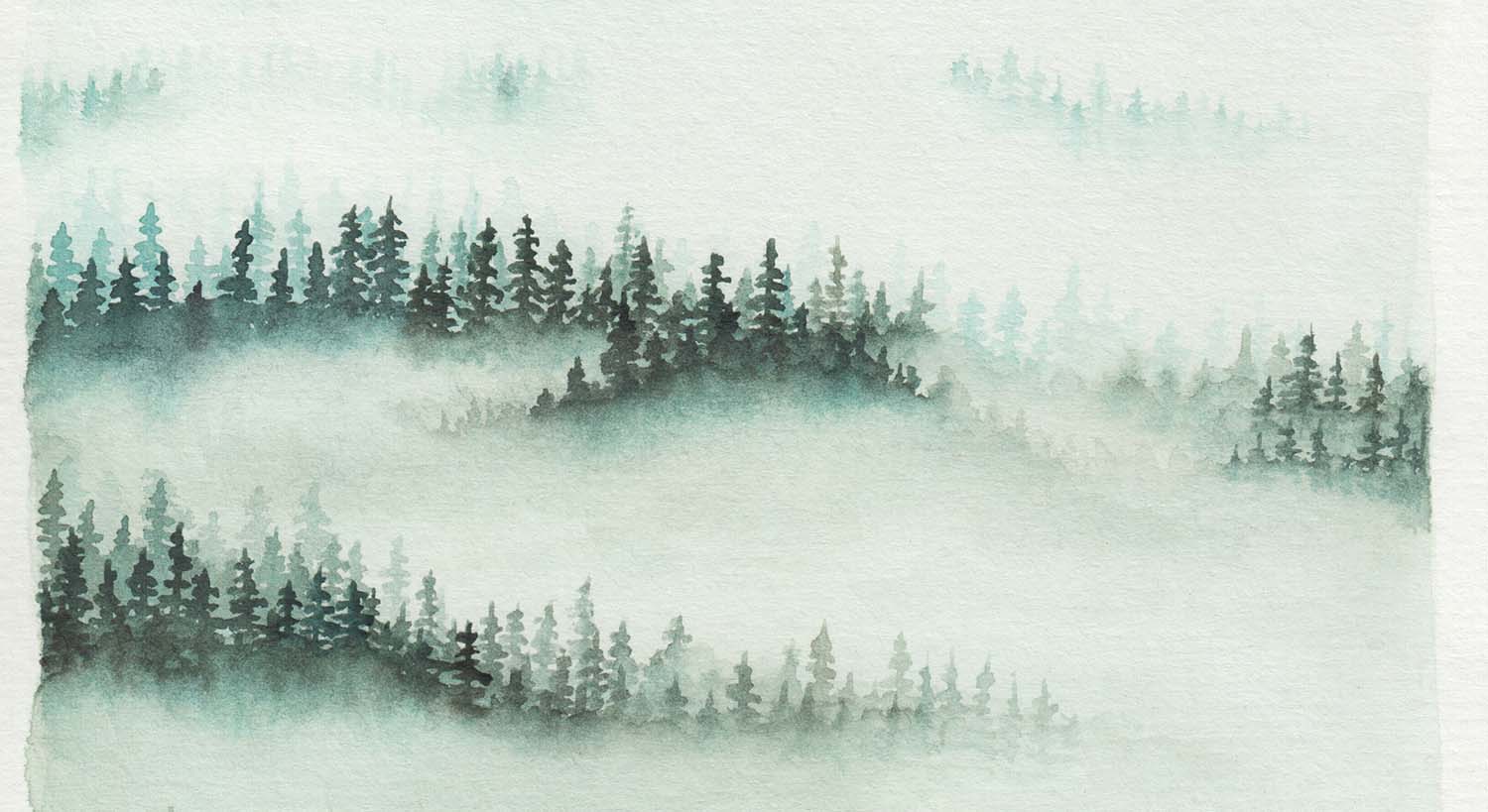
Foggy Forest Watercolor Painting
A foggy forest is a rather simple motif for a watercolor painting because basically you always paint the same thing in different sizes or different intensity of color. Before we venture to the actual painting, we take a look at useful materials and helpful techniques.
Material & techniques for the forest
If you have never painted with watercolor, you could take a quick look at the article Painting with Watercolor and get familiar with the basics.
Painting a tree with watercolor
For this watercolor painting, you can paint very simple trees. It is enough to draw a vertical line for the trunk of each tree and add strokes of different lengths on both sides.
Nothing can go wrong here, because the more irregularly you paint the strokes, the more natural your forest will look.
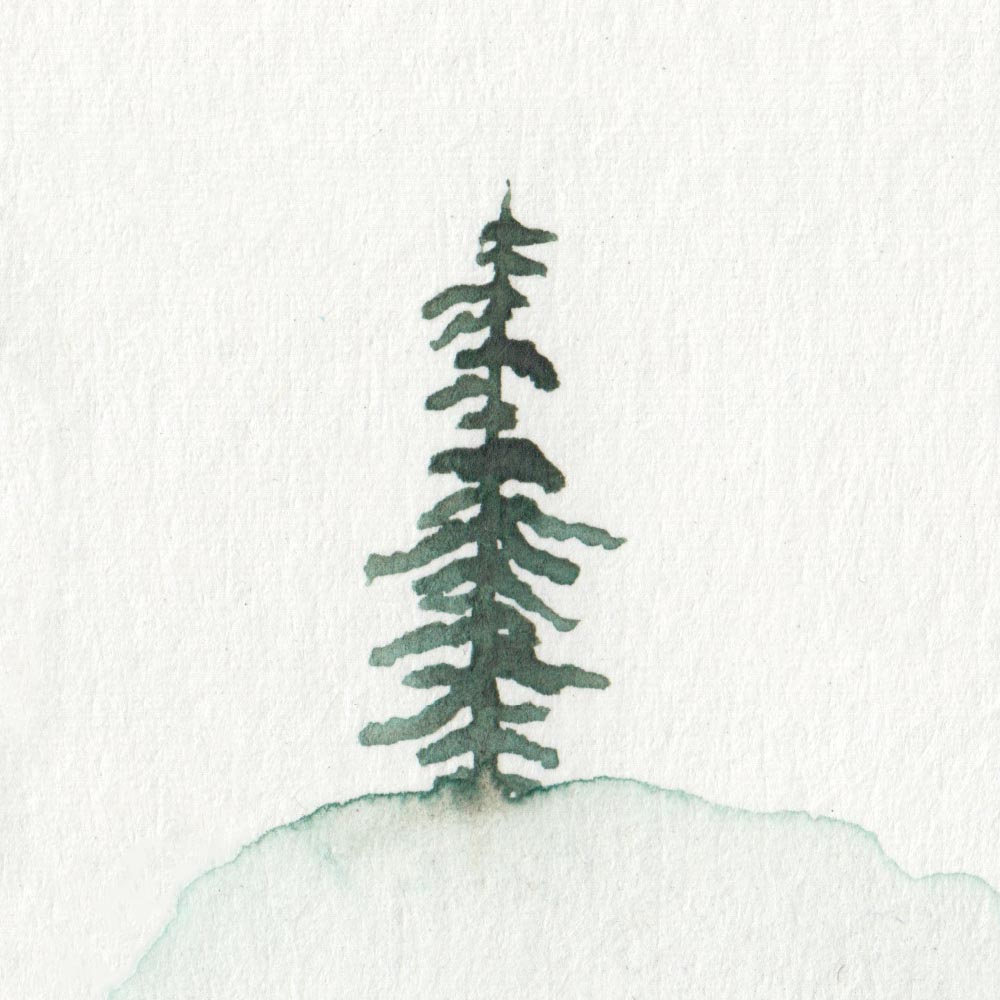
Painting trees in different shades
In order to give depth to our forest, we will paint our groups of trees in different shades of color - from saturated to transparent. If you paint a group of trees in this way, the saturated trees will come to the foreground, while the transparent trees will fade into the background.


Painting trees with different brushes
In addition to the different shades of color, trees of different sizes will help us give depth to the forest as well. And to make our lives easier, we can simply use different sizes of brushes.
For my painting, I will use brushes in sizes 0, 3, and 8 for the trees, as well as one larger brush (3, 9, and 12) each, with which I will paint the fog effect.

Painting trees in fog
We will paint the fog mainly with clear water in which the color pigments of the trees dissolve. For this reason, I would recommend using a separate, clean brush. If you do not have any additional brushes at your disposal, you should wash your brush very thoroughly in between.
Painting a tree partially in fog
To paint a tree partially in the fog, we first moisten the area with clear water where we want the fog to be. Then we paint the tree from top to bottom. If we paint in the other direction, i.e. from bottom to top, we run the risk that far too many color pigments will be mixed into the wet area and we end up painting colored smoke instead of fog.
What we want to achieve by painting through the wet area is a blurry, light silhouette of the tree in the fog.
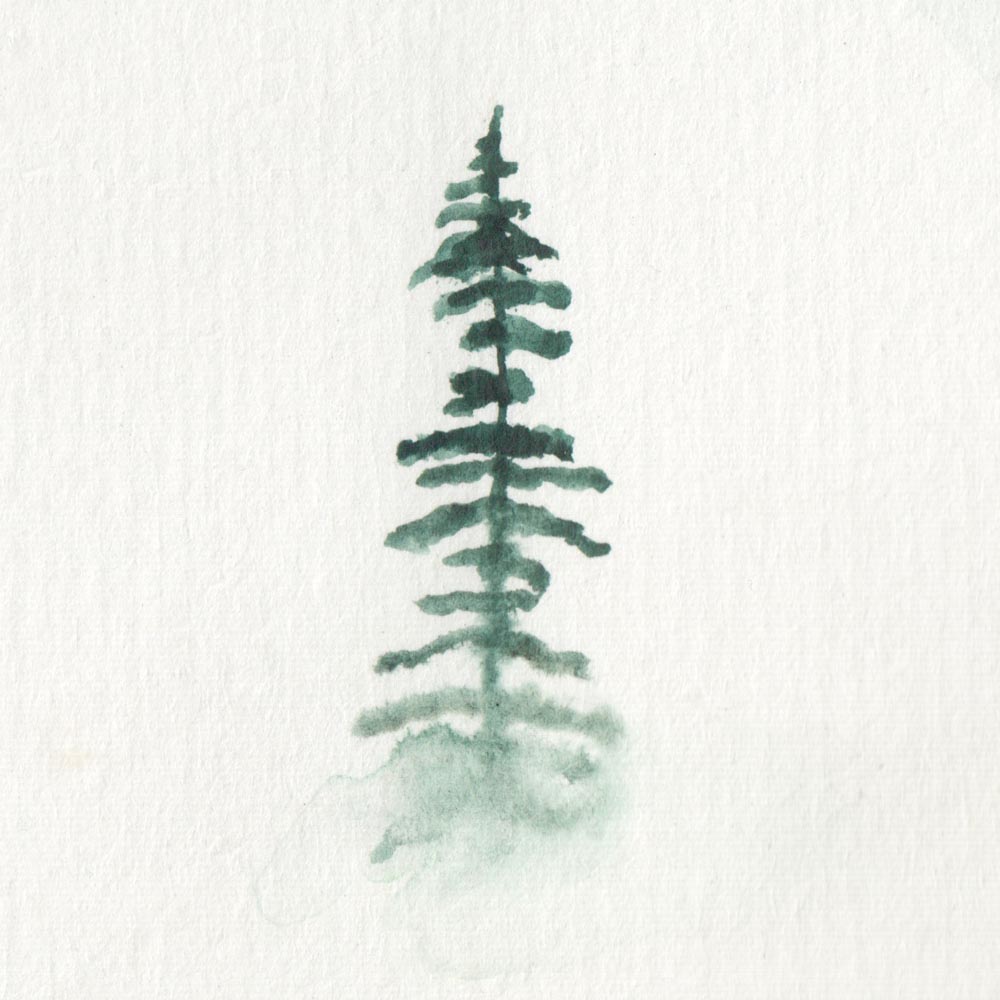
Painting a tree completely in fog
To make a tree completely disappear in the fog, we first have to prepare the whole area with clean water. Next, we paint the tree with a very sheer color.

We should definitely resist the urge to work with too intense color, even if the tree may seem too bright to us. Since you can hardly see anything through dense fog anyway, a tree painted with too intense color simply looks like a big stain.

Correcting pigment borders
Sometimes pigmented edges can form when wet areas of the fog dried. But don't worry, these can be easily corrected with clean water by painting gently over the edges until they dissolve.
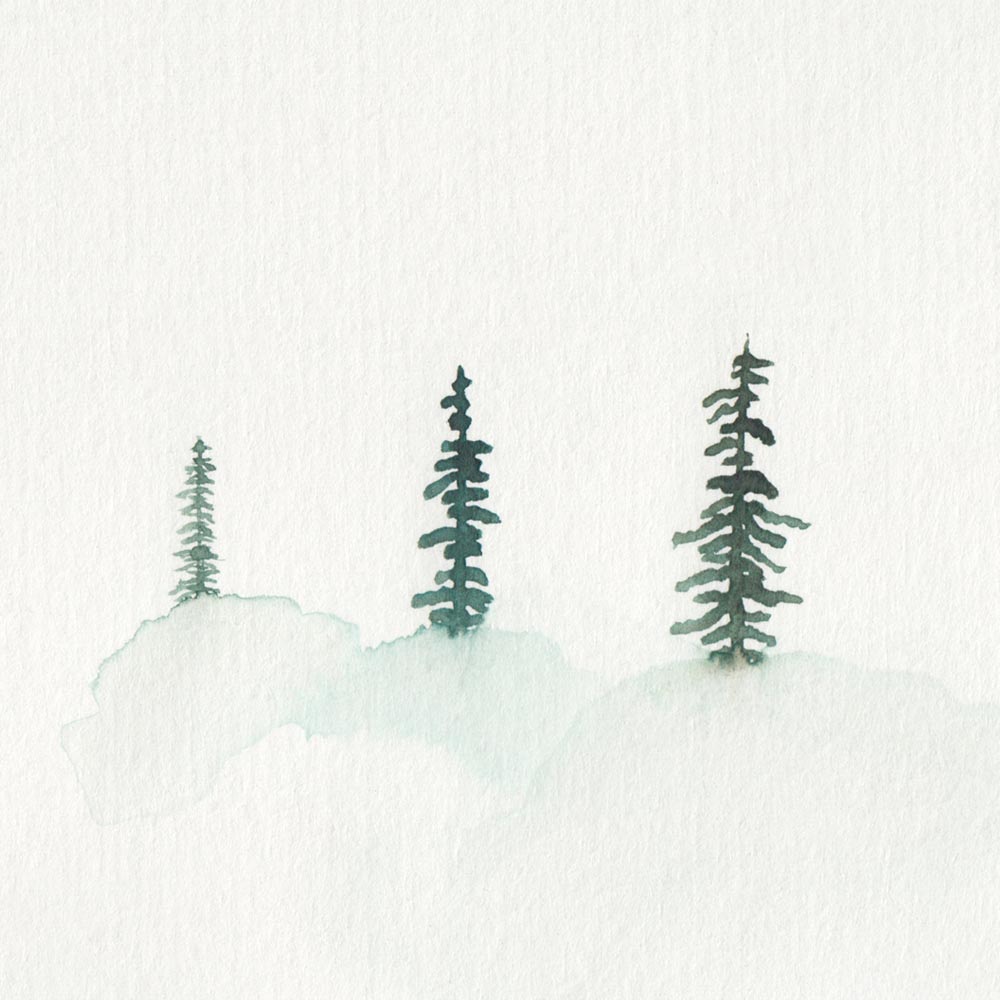
Colors for the foggy forest
For the foggy forest, we can combine various colors. Whether juicy or cold green tones, even the colors of a sunset can be used for this watercolor painting.
For the following example, I use a cool color palette, where I mix Coelin blue and Umbra burned in different proportions.
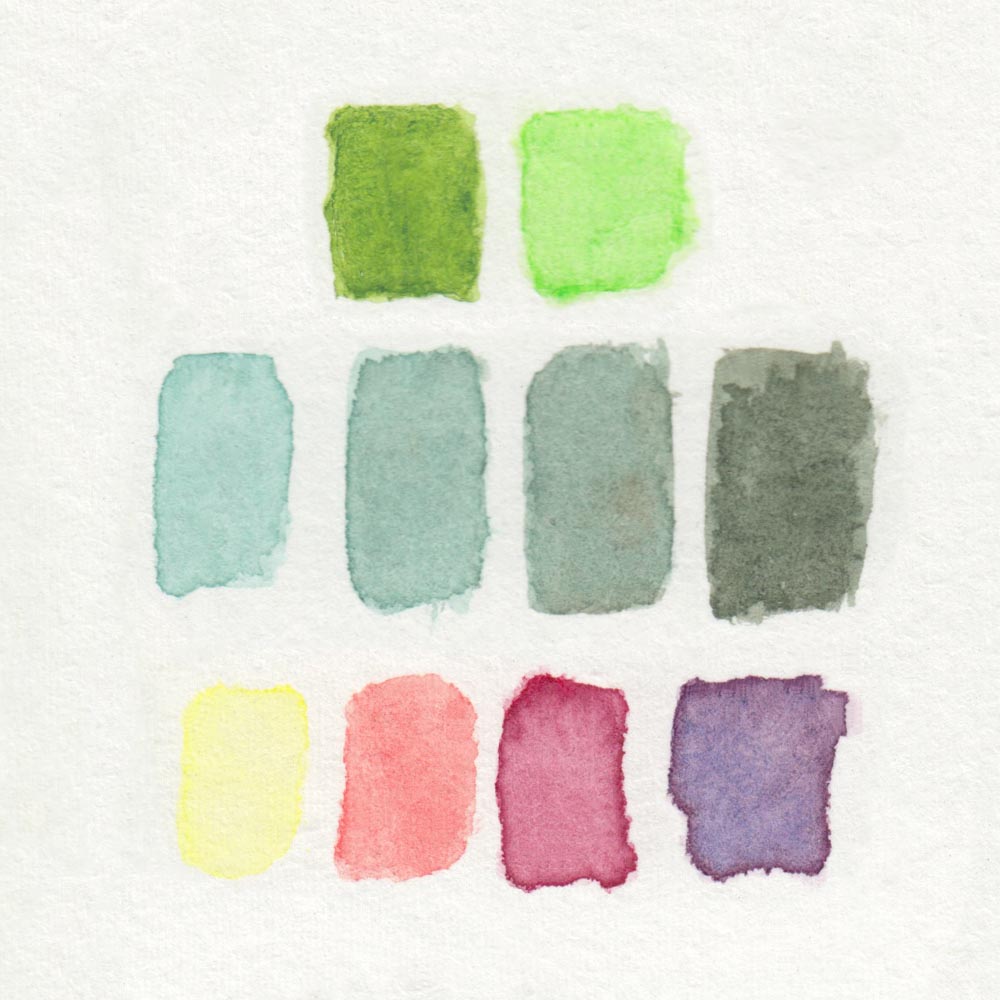
Watercolor Painting: Foggy Forest
In our example, the trees are placed on smooth hills, but you can also place them in straight rows next to each other.
We start off with the trees at the back, so we work with a small brush, transparent color, and place our first chain of trees near the top of the paper. In the example I let the whole left area of the tree chain fade into the fog, while in the right area the contours of the individual trees are visible despite the very transparent use of color.

When everything is dry, we can paint a second, third, or maybe even fourth layer over it with the same brush. With each additional layer, the color should become more intense. We should make sure to keep the lower part of the tree chains always moist so that the colors can run into the fog.

We can add any number of tree chains. They can be spread all over the paper or be cut off in some places. In some areas, we can also do without intense color to create the illusion of, particularly strong fog. The more unevenly we paint, the more natural the forest will look.
Tip: When we reach the lower half of the forest, we can switch to a larger brush. The trees are closer to the viewer and should therefore get a little bigger.

The final watercolor painting
Although the motif is very simple to paint, the use of the different techniques is great fun and the final result always looks fascinating.
Since colors have an enormous influence on the mood of the painting, it can be interesting to paint the motif again with different colors. You will always create a completely new, unique foggy forest!
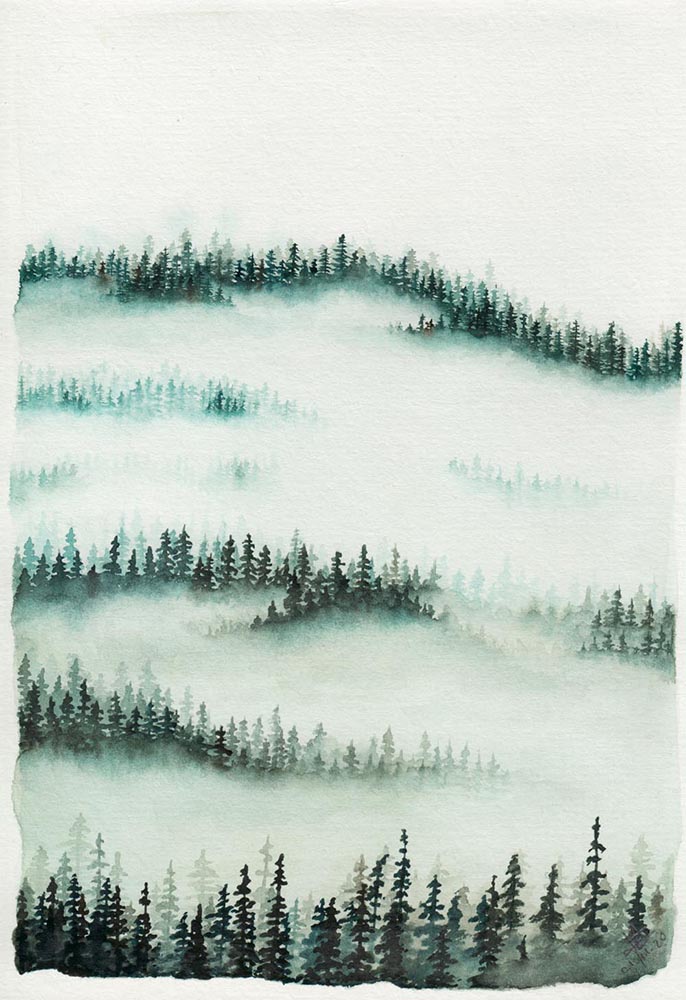
Similar Posts